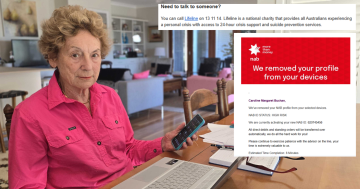Mike Winters* explains the simple steps people can take to protect themselves from ad scams on Facebook and Instagram.
 Shopping on social media has come with more risks as the pandemic grinds along.
Shopping on social media has come with more risks as the pandemic grinds along.
Since last year, scams from online purchases make up nearly half of all complaints in the Better Business Bureau’s Scam Tracker, with many of those complaints pointing a finger at shady ads on Instagram and Facebook.
Here’s how you can protect yourself.
What’s going on?
The fluid nature of online sales has allowed for fly-by-night operations to set up phony offices, sell high volumes of a product using deceptive ads, and then disappear.
They will either sell things that never arrive, or they might sell something that’s absurdly off the mark from what they advertise.
Examples include a “snowblower” that ends up being an ice chipper, and a “motorised surfboard” that is nothing more than cheap foam.
In another example, hundreds of parents ordered what they thought was an oversized unicorn for their children to ride, but instead received a small inflatable toy.
How to spot phony ads on social media
- Be sceptical of offers that are too good to be true, or are otherwise enticing in a way that’s meant to keep your guard down, like a claim that some of the sale proceeds will go to “charity.”
- Google the business’ name followed by “review,” “complaints,” or “scam.” If you see a lot of results, walk away.
- Search for the retailer on the BBB’s website to make sure it’s legitimate, and see what letter grade it receives (from A to F).
- Check to see that the company has a real street address.
In one case, a woman looked up an address for a bogus luxury goods company and discovered it was an abandoned house. - Be aware that product photos can be stolen from anywhere, so what you see might not be what you get, even if it looks like a real product.
- Check to see if the company has a legitimate site with proper “contact us” details and customer support. If not, be wary.
- Look for a Google or PayPal trust seal on the site.
Lastly, even for legitimate purchases, use your credit card to ensure maximum consumer protections, and avoid paying online using a prepaid gift card, CashApp, Zelle, Venmo, or by wire transfer.
*Mike Winters is a contributor at Life Hacker.
This article first appeared at lifehacker.com.au.











